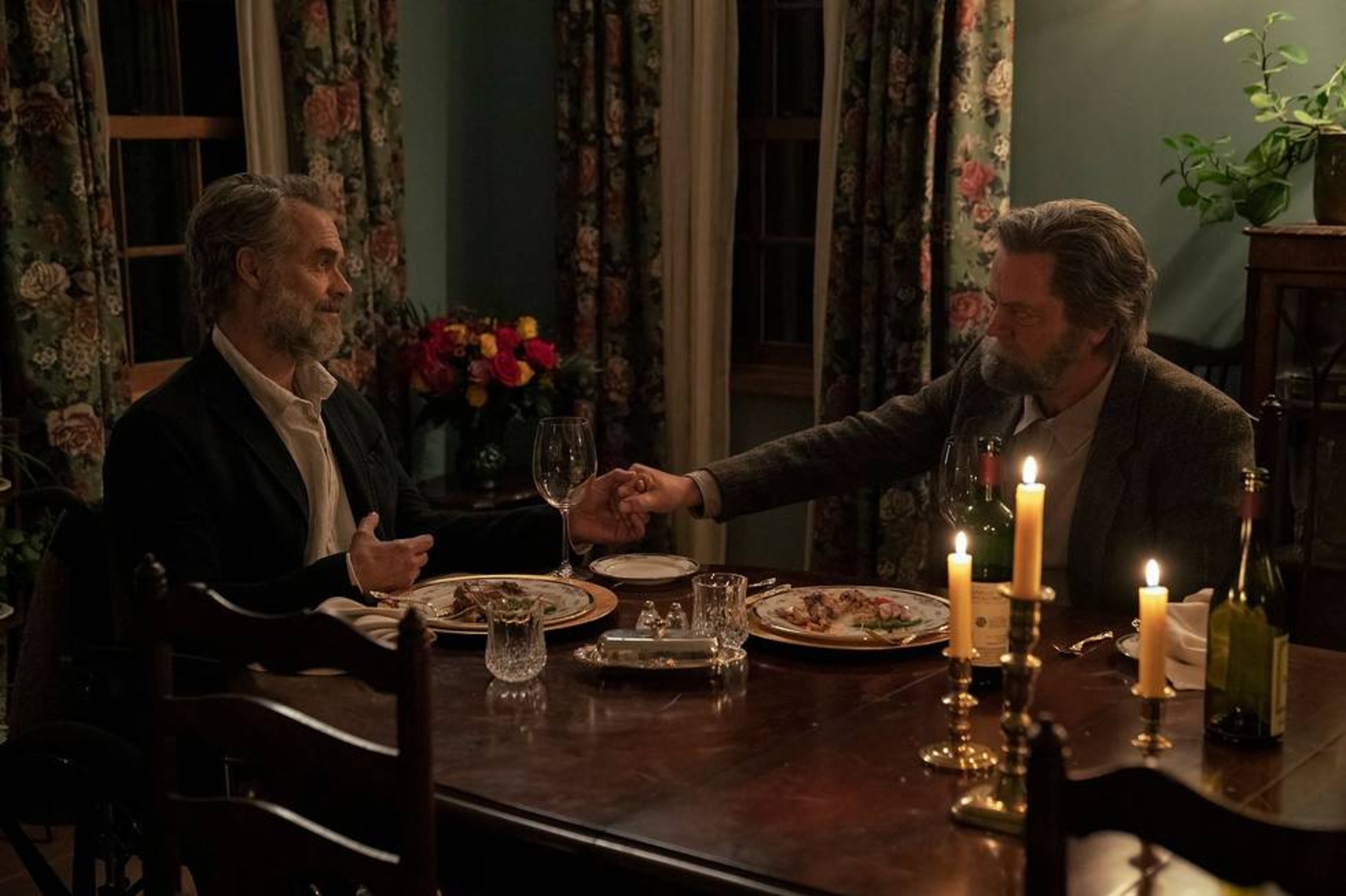
The third episode of The Last of Us had viewers wiping away tears throughout its hour-plus run. Viewers are introduced to Bill, one of the more underdeveloped characters in the popular video game on which the show is based. In the TV adaptation, Bill (Nick Offerman) gets a more fleshed out—and gut-wrenching—arc. A doomsday prepper even before the cordyceps outbreak, Bill stays in his bunker with a stockpile of guns and ammunition while FEDRA rounds up civilians to be taken to a quarantine zone. The episode then jumps to four years later, where viewers see Bill meet Frank (played by Murray Bartlett), a man who falls into one of the traps Bill sets up to catch stray zombies.
Bill is apprehensive of the newcomer but eventually invites Frank to the house to get cleaned up and eat. As Frank is about to leave, he goes over to a piano in Bill’s house and finds the sheet music for the song “Long Long Time” in a “Best of Linda Ronstadt” songbook. He begins to play but struggles; Bill then takes over for him and finishes the song. The song marks the beginning of a long, beautiful, and unexpected relationship in the midst of a zombie apocalypse and holds major significance in the episode. While “Long Long Time,” a track on Ronstadt’s 1970 album Silk Purse, is about a love that never was, Bill only sings the first two verses about loving someone and how time heals wounds.
Read more: How HBO’s The Last of Us Tries to Capture the Video Game’s Complex Morality
In an interview with IndieWire, series co-creator and showrunner Craig Mazin recalled telling Neil Druckmann, the original game writer and co-creator of the series, that he wanted the characters to bond over a sad song. “I remember saying to Neil, ‘I’m not sure what the song is; I just know that it has to be this incredibly sad song about yearning for love, and never getting love, and just making your peace with the fact that you will always be alone,” he said, adding that the intention was to “show the arc of commitment” and “to hit the highlights of moments in your life where love means something different.”

Bill is a man who never had the chance to explore his sexuality before the apocalypse. He’s never trusted anyone else—especially the government (if the survivalist attitude and “Don’t Tread on Me” flag didn’t give it away). He figures he will live the rest of his days alone, taking care of only himself—until Frank comes along. The lyrics in “Long Long Time” mirror the relationship that blooms between them: “Love will abide, take things in stride/Sounds like good advice, but there’s no one at my side,” they read. “And time washes clean, love’s wounds unseen/That’s what someone told me, but I don’t know what it means.”
Over 20 years, the episode shows the two falling in love and trying to protect each other from the outside world (not without some bumps in the road and Bill taking a bullet). They age together, laugh together and fight together for decades, until Frank becomes sick and asks Bill to help him end his life. Bill agrees, later revealing that he plans to die, too, rather than live in the world without Frank.
They drink pill-riddled wine, go to their bedroom, and die together—exactly how they want to go. They live out the message of “Long Long Time,” (or at least the first two verses): “’Cause I’ve done everything I know to try and make you mine/And I think I’m gonna love you for a long, long time.”
At the end of the episode, Joel (Pedro Pascal) and Ellie (Bella Ramey) come to the house looking for Bill and Frank, and find a suicide note and the keys to a truck they need. In the glove box, Ellie finds a cassette tape labeled “mix for Bill). Though Joel tells her not to play it at first, once he hears the song, he says, “No, leave it. Leave it, this is good. This is Linda Ronstadt” and “Long Long Time” plays as the two drive west.
If you or someone you know may be contemplating suicide, call the National Suicide Prevention Lifeline at 1-800-273-8255 or text HOME to 741741 to reach the Crisis Text Line. In emergencies, call 911, or seek care from a local hospital or mental health provider.
More Must-Reads from TIME
- Cybersecurity Experts Are Sounding the Alarm on DOGE
- Meet the 2025 Women of the Year
- The Harsh Truth About Disability Inclusion
- Why Do More Young Adults Have Cancer?
- Colman Domingo Leads With Radical Love
- How to Get Better at Doing Things Alone
- Michelle Zauner Stares Down the Darkness
Write to Moises Mendez II at moises.mendez@time.com